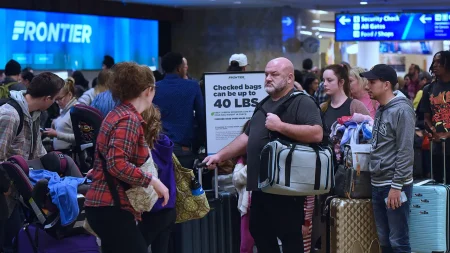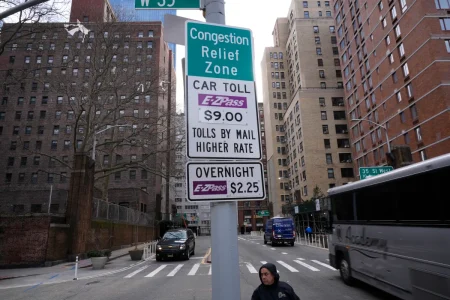A chilling reminder of the persistent threat of terrorism struck the heart of New Orleans on New Year’s Day. A vehicle ramming attack, inspired by the Islamic State (ISIS), claimed the lives of 15 people and injured dozens more. The perpetrator, Shamsud-Din Jabbar, a 42-year-old American citizen and former U.S. Army member, pledged allegiance to ISIS in a pre-recorded video and displayed an ISIS flag on his truck. This attack marked the deadliest jihadist act on American soil since the 2016 Pulse nightclub shooting, raising serious concerns about the enduring influence of ISIS despite the territorial defeat of its caliphate. The incident highlighted the vulnerability of large public gatherings to such attacks, given their symbolic value and potential for mass casualties. Jabbar’s military background adds another dimension to the incident, raising concerns about radicalization within the ranks of veterans.
The attack in New Orleans underscores the strategic adaptation of ISIS to a decentralized operational model. While the physical caliphate has crumbled, the group continues to inspire and orchestrate attacks globally through online propaganda and decentralized networks. Vehicle ramming attacks, a hallmark of ISIS’s tactical repertoire, have been employed with devastating effect in cities across the globe, including Nice, Berlin, New York City, Stockholm, London, and Barcelona. The ease of access to vehicles and the simplicity of execution make such attacks incredibly challenging to predict and prevent, posing a significant challenge to law enforcement and security agencies. This particular incident highlights the effectiveness of ISIS’s online radicalization efforts, which exploit readily available social media platforms to disseminate extremist ideologies and incite violence.
The ongoing investigation into Jabbar’s radicalization process will shed light on the factors that contributed to his embrace of extremist ideology. The increasing proliferation of ISIS-related online content, readily accessible through various platforms, poses a formidable challenge in countering radicalization efforts. This digital ecosystem of extremist propaganda serves as a breeding ground for potential recruits and facilitates the dissemination of tactical guidance for carrying out attacks. The timing of the attack, coinciding with the New Year celebrations, reflects a deliberate attempt to maximize casualties and instill fear. ISIS-K, the group’s Afghan affiliate, had been actively promoting attacks during the holiday season through its social media channels, further demonstrating the persistent threat posed by the group’s global network.
In the aftermath of the attack, discussions have inevitably focused on security vulnerabilities and the need for enhanced protective measures. While such assessments are crucial, it is equally important to prioritize proactive measures that prevent radicalization and disrupt terrorist plots before they materialize. The resurgence of ISIS in regions like Somalia and the evolving political landscape in Syria provide fertile ground for the group’s resurgence. This potential resurgence could translate into a renewed wave of attacks in the West, demanding heightened vigilance and proactive counterterrorism strategies. The focus should not solely be on reactive security measures but also on understanding and addressing the root causes of radicalization, both domestically and internationally.
The attack in New Orleans also ignited a debate on immigration and border security. Some political figures, including then-President-elect Donald Trump and his national security advisor pick, Rep. Mike Waltz, advocated for stricter border controls as a primary counterterrorism measure. This stance, despite Jabbar being a U.S. citizen, echoes previous policies like the travel ban on citizens from several predominantly Muslim countries. While border security remains a critical aspect of national security, the emphasis on external threats overlooks the significant danger posed by homegrown violent extremists, individuals radicalized within the United States. Research consistently demonstrates that the majority of lethal attacks on U.S. soil since 9/11 have been perpetrated by U.S. citizens or permanent residents, highlighting the urgent need to address internal radicalization.
The New Orleans attack serves as a stark reminder of the multifaceted and evolving nature of the terrorist threat. The enduring ability of ISIS to inspire attacks, even after losing its territorial control, underscores the need for comprehensive counterterrorism strategies that go beyond border security. Addressing the root causes of radicalization, disrupting online propaganda networks, and enhancing domestic intelligence gathering are crucial components of an effective response. The attack is a wake-up call for the intelligence community, law enforcement, and policymakers to prioritize proactive measures that prevent radicalization and disrupt terrorist networks before they can inflict further harm. The incident also underscores the importance of international cooperation in combating terrorism and addressing the underlying conditions that fuel extremism.













